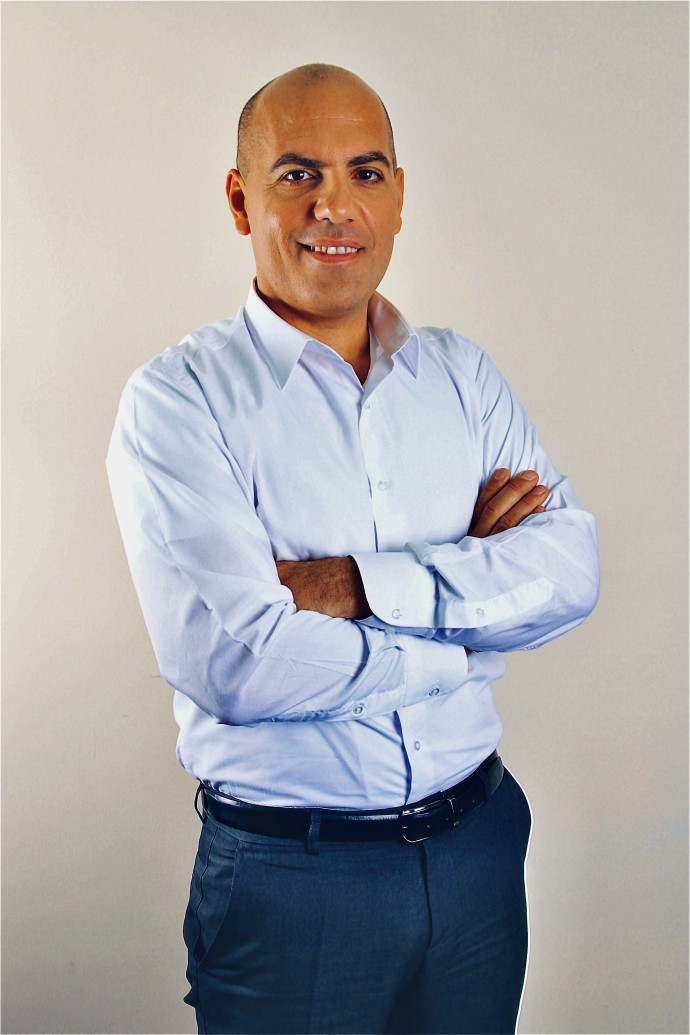The big data revolution in the world of investments is already here

“The mix of new technologies and traditional human intelligence are the future of the investment sector in Israel,” Kinneret Farzon, founder and CEO of Fjord Robo Advisor and Izik Noy, director at the firm recently told The Jerusalem Post.
Farzon and Noy sat down with The Post to discuss the technological advancements in the field of investments and the future of this sector in Israel.
"The world of investing today is focused on a very traditional and olden method, whereby an advisor, a human being, analyzes and selects investment portfolios," Noy said.
According to Noy, this creates several disadvantages including a limited knowledge base, personal bias, and slow response times to the fast-paced market changes, to name a few.
As such, he said, there is a growing and pressing need to incorporate new and existing technologies into the outdated world of investing, both abroad and in Israel specifically.
Fjord Technologies, the first digital investment house was founded with the aim of bringing the digital revolution to the world of investments in Israel.
This innovative method is based on the statistical ability of technology to create a competitive advantage and make an objective portfolio based on the preferences of the client, while relying on Big data and AI technologies, without personal bias or special interests.
“Fjord aims to use all the most available hi-tech for the world of investments,” Farzon said.
This use of advanced technology was designed to produce a global and diversified investment portfolio that is optimally matched to every individual person’s risk profile. The company offers robo-investment advice and savings management services.
"If you look back throughout history you find that in the 17th century, brokers in London would sit in a coffee house and write deals on napkins to be bought and sold commodities ," she said.
According to Farzon, the next stage in the development of the investment world took place in NY stock exchange, as runners would pass deals from buyers and sellers.
Then, in 1971 the first electronic stock exchange was established, the NASDAQ. "Since then, five decades later, there have not been any major changes with regards to stock exchanges and investing," she said.
Farzon said that today we are experiencing a "new revolution", which made its first breakthrough in the United States in 2013, with the rise of fintech companies and Robo Advisors.
"Now after the digital revolution of the 20th century, we are in the midst of a new revolution - the big data revolution," she said. "If until today we focused on technology, now we are more focused on information and the synergy of these two."
"If you think about it, all of these deals and runners, they were made by passing relevant information from one person to the next. Today, due to the digital revolution we have an abundance of information and companies that know how to accumulate and make use of this huge amount of information are the ones that will succeed,” she added.
Farzon explained that the goal of big data in the world of investing, allows for less dependence on human intelligence - that is, the traditional and outdated method of reading or analyzing data.
"What is truly remarkable is that we are accumulating all the information, not just from one analyst but from thousands, analyzing it in milliseconds in real time and developing conclusions," Noy said. "This is the future - the synergy between human intelligence and technology."
As such, Fjord technologies works with major research and advisory firms in the US as well as hundreds of mutual funds in the US, accumulating all the relevant information and data and providing clients with custom tailored investment portfolios that are suitable for all types of investors, corporations or individuals, and for any investment amount.
According to Noy, this use of technology has distinct advantages beyond the aggregation and analyzing of information.
"The incorporation of technology allows us to provide tailored and extremely diversified investment portfolios, whether in stock or real estate or other investments at a global and professional level at a fraction of the costs and with no minimum investment limitations," he said.
This platform is especially beneficial to olim, or new immigrants, as well as people with investments in other countries. "We have the ability to collect relevant and timely information on investments and markets in other countries, so that they don't need to make any changes, their money stays where it is but is managed in the best possible way under regulation," he added.
Still, despite its clear advantages, Farzon said there are still some obstacles to the incorporation of this new technology, mainly a psychological obstacle. "People are afraid to rely on technology when it comes to their investments," she said. "Though I think slowly, as more and more companies adopt such tech this obstacle will be overcome."
She added: "Just as we rely on big data for navigation, we will soon rely on big data and technology to manage our investments."
This article was written in cooperation with Fjord technologies
Jerusalem Post Store
`; document.getElementById("linkPremium").innerHTML = cont; var divWithLink = document.getElementById("premium-link"); if (divWithLink !== null && divWithLink !== 'undefined') { divWithLink.style.border = "solid 1px #cb0f3e"; divWithLink.style.textAlign = "center"; divWithLink.style.marginBottom = "15px"; divWithLink.style.marginTop = "15px"; divWithLink.style.width = "100%"; divWithLink.style.backgroundColor = "#122952"; divWithLink.style.color = "#ffffff"; divWithLink.style.lineHeight = "1.5"; } } (function (v, i) { });

